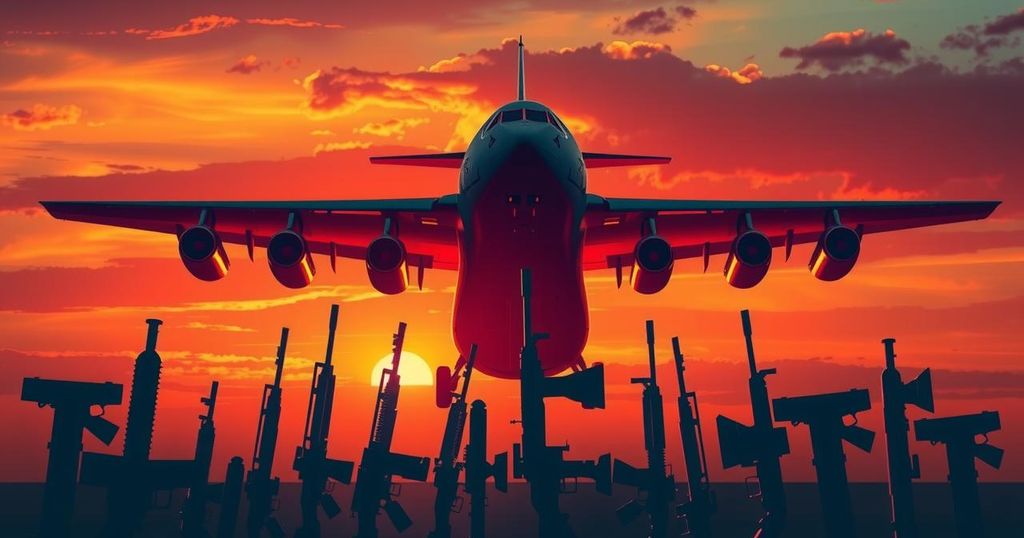Sudan has accused the UAE of genocide support in West Darfur, prompting legal action at the ICJ. Concerns grow over South Africa’s arms exports to the UAE, raising questions about complicity in human rights violations. The adequacy of South Africa’s arms export regulations and its commitment to international law is being scrutinized amidst these developments.
On March 6, 2025, Sudan lodged proceedings against the United Arab Emirates (UAE) at the International Court of Justice (ICJ), charging the UAE with violations of the Genocide Convention. Sudan accuses the UAE of complicity in genocide in West Darfur by supporting the Rapid Support Forces (RSF), a paramilitary group accused of perpetrating atrocities. This situation underscores concerns regarding arms transfers that may exacerbate conflicts and violate human rights.
Sudan is requesting the ICJ to take provisional measures against the UAE with claims that genocide has occurred in West Darfur since 2023. The application asserts that the UAE has been instrumental in supporting the RSF, stating, “The United Arab Emirates fuels the rebellion and supports the militia [RSF] that has committed the crimes of genocide in West Darfur.” The court’s jurisdiction remains uncertain amidst the UAE’s reservation under the Genocide Convention, complicating any potential adjudication of the case.
The core issue revolves around the claim that third states, including South Africa, may bear responsibility for arms exports that contribute to violations of the Genocide Convention. South Africa’s arms exports to the UAE are particularly pertinent, having totaled nearly R88 million in 2023, which raises concerns regarding the end use of these arms and their potential diversion to the RSF.
South African law mandates end-user certificates to prevent the misuse of exported arms. However, the enforcement of this regulation has been inadequate, which raises the possibility of South African arms being misappropriated in conflict zones like Sudan. The trend of exporting arms to nations with known human rights abuses undermines South Africa’s broader commitment to international law.
Despite documented human rights violations in Sudan, South Africa has not revoked any arms export permits to countries implicated in international crimes, which poses a threat to its credibility on human rights issues. Previous incidents, such as arms exports to Myanmar during a genocide, exemplify ongoing contradictions in South Africa’s foreign policy.
South Africa’s arms exports to the UAE occur amidst accusations of the UAE’s involvement in human rights violations in Yemen. The inconsistency in its approach to these issues raises concerns regarding double standards. For South Africa to meet its commitment to international law and human rights, a fundamental reassessment of its arms export policies is necessary, prioritizing ethical considerations over economic advantage.
In conclusion, the legal proceedings initiated by Sudan against the UAE at the ICJ highlight significant concerns surrounding arms exports and human rights violations. The allegations of the UAE’s support for the RSF and the implications for countries like South Africa underscore the need for stringent arms export regulations. South Africa’s recent arms transactions with the UAE, set against a backdrop of reported human rights abuses, compel a reevaluation of its export practices, reinforcing the principle that economic interests must not supersede human rights obligations.
Original Source: mg.co.za






